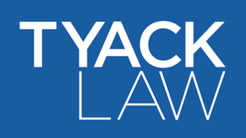Passed on September 8, 2016, House Bill 523 legalized medical marijuana in Ohio. Under the Ohio Medical Marijuana Control Program, residents with certain qualifying conditions and a recommendation from a physician will be permitted to register with the State of Ohio Board of Pharmacy for a patient ID card. Ohio law requires all retailers, growing operations, testing labs and other medical marijuana businesses to be fully operational by September 8, 2018. The law only permits non-smoking forms of medical marijuana.
However, obtaining a medical marijuana patient ID card will likely preclude Ohio residents from owning a gun under federal law.
While Ohio has made non-smoking forms of medical marijuana legal, federal law nonetheless classifies marijuana as a Schedule I controlled substance. Thus, under federal law, Ohio residents who obtain a medical marijuana patient ID card to lawfully use marijuana cannot legally posses guns.
In 2011, the Bureau of Alcohol, Tobacco, Firearms and Explosives confirmed as much in its Open Letter to All Federal Firearms Licensees. That letter stated the following:
As you know, Federal law, 18 U.S.C. § 922(g)(3), prohibits any person who is an “unlawful user of or addicted to any controlled substance (as defined in section 102 of the Controlled Substances Act (21 U.S.C. 802))" from shipping, transporting, receiving or possessing firearms or ammunition. Marijuana is listed in the Controlled Substances Act as a Schedule I controlled substance, and there are no exceptions in Federal law for marijuana purportedly used for medicinal purposes, even if such use is sanctioned by State law. Further, Federal law, 18 U.S.C. § 922(d)(3), makes it unlawful for any person to sell or otherwise dispose of any firearm or ammunition to any person knowing or having reasonable cause to believe that such person is an unlawful user of or addicted to a controlled substance. As provided by 27 C.F.R. § 478.11, “an inference of current use may be drawn from evidence of a recent use or possession of a controlled substance or a pattern of use or possession that reasonably covers the present time."
Therefore, any person who uses or is addicted to marijuana, regardless of whether his or her State has passed legislation authorizing marijuana use for medicinal purposes, is an unlawful user of or addicted to a controlled substance, and is prohibited by Federal law from possessing firearms or ammunition. Such persons should answer "yes" to question 11.e. on ATF Form 4473 (August 2008), Firearms Transaction Record, and you may not transfer firearms or ammunition to them. Further, if you are aware that the potential transferee is in possession of a card authorizing the possession and use of marijuana under State law, then you have "reasonable cause to believe" that the person is an unlawful user of a controlled substance. As such, you may not transfer firearms or ammunition to the person, even if the person answered "no'' to question 11.e. on ATF Form 4473.
ATF Form 4473 is the form a potential gun owner fills out before they purchase a firearm. This form is used to conduct a background check. Specifically, Question 11.e. asks “Are you an unlawful user of, or addicted to, marijuana or any depressant, stimulant, narcotic, drug, or any other controlled substance?” However, included with this question is a warning that was added in 2017, which states: “Warning: The use or possession of marijuana remains unlawful under Federal law regardless of whether it has been legalized or decriminalized for medical or recreation purposes in the state where you reside.”
Thus, even if you lawfully use marijuana under Ohio law, a medical marijuana patient ID card holder cannot legally ship, transport, receive, purchase, or otherwise possess firearms or ammunition. Moreover, if a lawful medical marijuana patient ID card holder answers “no” to Question 11.e. on ATF Form 4473, they may be exposed to the felony charge of providing false information under federal law.
While it remains to be determined how strict enforcement will be in Ohio, current gun owners should consult with an attorney before obtaining a medical marijuana patient ID card to understand the potential implications associated with obtained such card. Potential new gun owners with medical marijuana patient ID cards should also consult with an experienced criminal defense attorney before completing the ATF Form 4473.
Disclaimer: The information in this blog post (“post”) is provided for general informational purposes only, and may not reflect the current law in your jurisdiction. No information contained in this post should be construed as legal advice from the Tyack Law Firm Co., L.P.A., or the individual author, nor is it intended to be a substitute for legal counsel or representation on any subject matter. No reader of this post should act or refrain from acting on the basis of any information included in, or accessible through, this post without seeking the appropriate legal or other professional advice on the particular facts and circumstances at issue from a lawyer licensed in the recipient’s state, country, county, or other appropriate licensing jurisdiction.
Talk with an experienced Lawyer today
Fill out the form to get started with your case evaluation.







